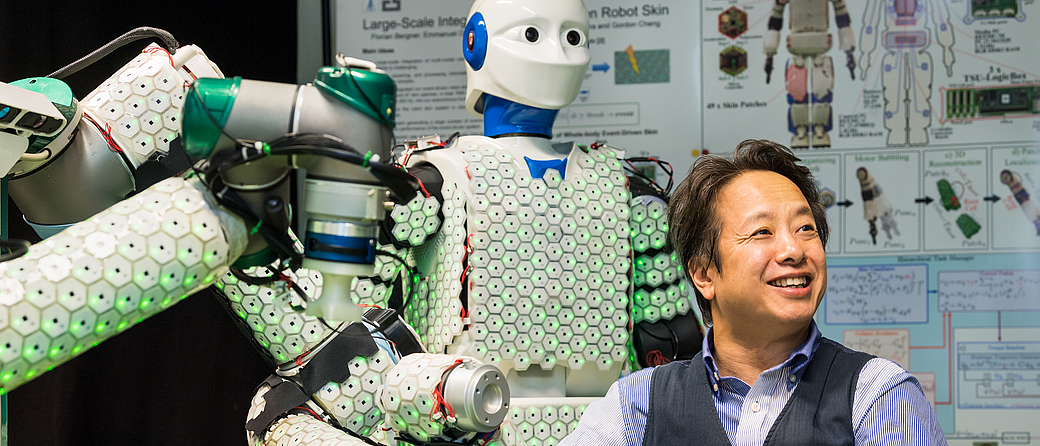At the 2014 World Cup in Brazil, the official opening kickoff was made by a paraplegic man using a high-tech rigid exoskeleton. Gordon Cheng played a key role in leading the development of that technology for the "Walk Again" project. In the STROLL research project, the goal of the professor of robotics and neuroengineering is now to help people walk again after a stroke or spinal injury with the help of a non-rigid exoskeleton. "Imagine a pair of pants that feels like regular clothing but contains powerful actuators and sensors," Cheng explains. The challenges in the "SofT-exoskeleton to RestOre Locomotion" research project, or STROLL for short, are to develop a soft exoskeleton for people whose lower extremities are partially or completely paralyzed to enable them to walk and to define and test potential applications with patients.
Gordon Cheng holds the Chair of Cognitive Systems, he is a Principal Investigator with the Munich Institute of Biomedical Engineering (MIBE) and Co-Director of the elite program Neuroengineering.
More Information
- New approaches against multi-resistant germs, a soft exoskeleton for people with paralysis, and research on an innovative manufacturing method: The European Research Council (ERC) will fund three projects by TUM scientists with the highly endowed ERC Advanced Grants. Another project will be funded with an ERC Proof-of-Concept Grant. Full article: ERC Grants awarded to researchers from the fields of engineering and biochemistry
- ERC Grants at TUM
